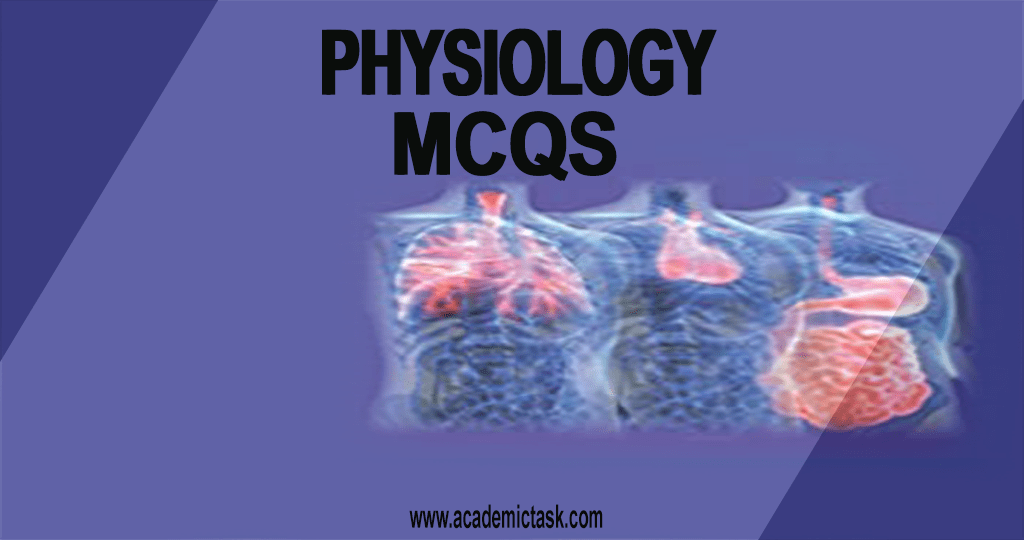
All these Physiology MCQs are specially framed to strengthen the conceptual understanding of different biology topics. Human Physiology MCQ with answers covers multiple concepts such as human digestion, nervous system, human reproduction, body fluids and circulation, breathing and exchange of gases, renal System, respiratory System, Git and Liver, endocrinology, locomotor and moment in human Sense Organs, Reflex Actions, Spinal Nerve, Physiology of Urine Formation, insulin physiology – and much more. All these topics are chosen from trusted and best reference books on physiology. These physiology MCQs with answers are also helpful for the preparation of various interviews, entrance examinations, other competitive examinations, and certifications for all Experienced, Freshers and Students. Also, check MCQs on Pharmacology here.
Physiology MCQS for Test Preparation
| S.NO | Physiology MCQS | S.NO | Physiology MCQS |
|---|---|---|---|
| 1 | Cardiovascular system Mcqs | 2 | Endocrinology Mcqs |
| 3 | Hematology Mcqs | 4 | Renal System Mcqs |
| 5 | Git and Liver Mcqs | 6 | Central Nervous System Mcqs |
| 7 | Muscles and Neuromusclar Junction Mcqs | 8 | Respiratory System Mcqs |
| 9 | Miscellaneous Mcqs | 10 |
1.which of the following secretions has a very high pH________________?
A. Gastric juice
B. Pancreatic juice
C. Bile in gall bladder
D. Saliva
2. Of the following is a reflex mediated by vagus ?
A. Bile flow from liver
B. Pancreatic secretion of bicarbonate
C. Cephalic phase of gastric secretion
D. Mucous secretion from the Brunner’s glands
3. Secretin is secreted by_____________?
A. Duodenum
B. Pancreas
C. Liver
D. Stomach
4. Peristalsis in the gut is due to ______________?
A. Preperistalitic intestinal secretion
B. Mecharical distension
C. Simultaneous action of circular and longitudinal muscles
D. Extrinsic nervous influence
5. The final sugars in intestinal chyme are____________?
A. Glucose & fructose
B. Ribose & mannose
C. Ribose & xylulos
D. Xylulose & fructose
6. The intrinsic factor for vitamins B12 absorption is produced in the______________?
A. Liver
B. Stomach
C. Pancreas
D. Duodenum
7. Peristalsis involves coordinated contraction and relaxation______________?
A. Above and below the food bolus
B. Lateral and medial to food bolus
C. Dorsal and ventral to food bolus
D. None of the above
8. Which is not produced enteroendocrinally_____________?
A. Intrinsic factor
B. Secretin
C. Motilin
D. GIP
9. The most important action of Secretin is to_____________?
A. neutralize the acid from the stomach
B. increase secretion of bicarbonates by pancreas
C. decrease gastric secretion
D. Cause contraction of pyloric sphincter
10. Trypsin is an activator of all of the following enzymes EXCEPT_______________?
A. Chymotrypsinogen
B. Pepsinogen
C. Proelastase
D. Procolipase
